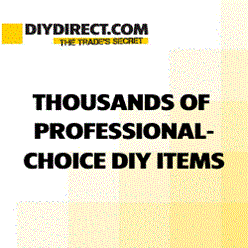In case you missed it see what’s in this section
Let's Talk

5 Tips To Help Any Fleet Manager In Manchester Increase Efficiency
Running a fleet of vehicles is no easy task, especially in bustling Manchester where the urban rhythm demands a continuous juggling act between efficiency and punctuality. But don’t worry, it’s not an impossible mission. Here, we offer valuable tips to help any fleet manager navigate the twists and turns of fleet management and significantly boost efficiency. Let’s dive right in!
Embrace Technological Innovation
Change, as they say, is the only constant in life. This phrase rings true in the realm of fleet management, where the rise of innovative technologies has transformed the industry’s landscape.
The first tip for any fleet manager seeking to increase efficiency is to embrace technology. Now, this doesn’t necessarily mean you need to invest in the latest and most expensive gadgets, but rather to be aware of the tools available and understand how they can improve your operations.
A key focus here is tachograph software for HGVs. This software is a game-changer in fleet management. Its main function is to record driving and rest times, speed, and distance, creating a transparent and accurate record of each journey. By utilising this technology, you can ensure that drivers adhere to regulations and maintain safe and efficient driving patterns. Tachograph software will benefit the HGVs within your fleet. There are remote tachograph download providers out there, such as FleetGO, that offer a modern solution. They have software that can download tachograph data remotely, rather than having to manually download them physically.
On the other hand, technology is also reshaping the way we communicate. The use of digital platforms for real-time information exchange between the fleet manager and drivers can enhance the efficiency of operations. Think of it as a way to keep your finger on the pulse of your fleet’s activities.
Remember, the goal is not just to incorporate technology, but to leverage it in a way that best suits your needs. It’s about creating a harmonious blend of human expertise and technological prowess to effectively manage your fleet.
Regular Maintenance is Key
Prevention is always better than cure, and that couldn’t be more accurate when it comes to managing a fleet. Regular vehicle maintenance is an essential aspect of fleet management that has a direct impact on the overall efficiency.
Regular vehicle check-ups help identify potential problems before they escalate into costly repairs or, even worse, vehicle downtime. Think about the domino effect that a single vehicle breakdown could have on your operations - delayed deliveries, upset clients, and lost revenue.
Fleet maintenance involves regular inspection of tyres, oil levels, brakes, and ensuring all electrical systems are functioning correctly. It also includes routine servicing as recommended by the vehicle manufacturer, including oil changes, filter changes, and more.
What’s more, proactive maintenance enhances vehicle longevity, meaning your fleet can provide reliable service for many more years. And don’t forget about the safety implications. Regularly maintained vehicles are less likely to be involved in accidents due to mechanical failures.
Invest in Driver Training
Another essential element for increased fleet efficiency is driver training. Let’s face it; your fleet is only as good as the drivers who operate the vehicles. Investing in comprehensive driver training can help promote fuel-efficient driving habits, reduce maintenance and repair costs, and decrease the chances of accidents.
Driver training should cover not only the technical aspects of driving but also soft skills like communication, decision-making, and stress management. After all, driving in a busy city like Manchester can be quite stressful, and a stressed driver is more likely to make mistakes.
Moreover, by promoting a culture of continuous learning and improvement, you can boost driver morale and job satisfaction. This, in turn, can lead to lower driver turnover, which is a significant cost in the fleet industry.
Route Optimisation
Navigating through the streets of Manchester can be challenging, particularly during rush hours. That’s where the power of route optimisation comes into play.
Route optimisation is more than just finding the shortest distance between two points. It’s about planning efficient routes that take into account various factors such as traffic patterns, road conditions, and vehicle capacities, among others. By optimising routes, fleet managers can save time, reduce fuel consumption, and ultimately increase the overall productivity of their operations.
Utilise route optimisation software that leverages real-time data and GPS tracking to provide the most efficient routes. This not only minimises idle time and unnecessary detours but also ensures timely deliveries, thereby increasing customer satisfaction.
Sustainable Practices
The last but certainly not the least important tip is the adoption of sustainable practices. With increasing environmental concerns and legislation, green practices are no longer optional. They are a necessity.
Implementing eco-friendly practices in your fleet management can lead to significant cost savings. Consider strategies such as the use of alternative fuels or electric vehicles, idle reduction policies, and recycling programs for used parts and materials.
Sustainability is also about future-proofing your operations. With the transport sector facing pressure to reduce carbon emissions, having a ‘green’ fleet can provide a competitive edge. Plus, it can help build a positive brand image, as more and more consumers are choosing to do business with environmentally responsible companies.
Weather in Manchester
Listings










